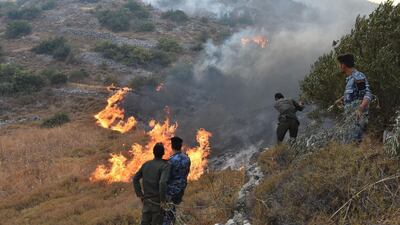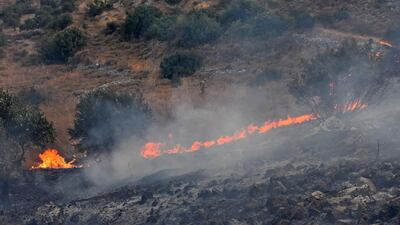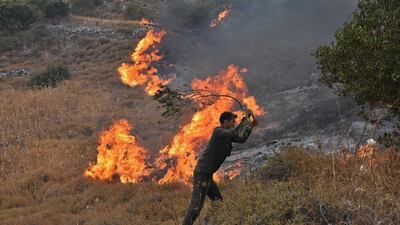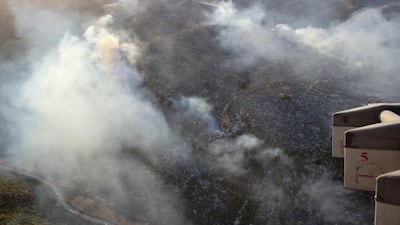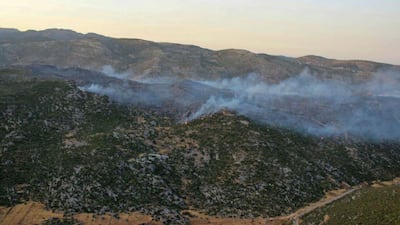Forest fires have devastated a large swathe of land in north-west Syria next to the final rebel stronghold in the war-torn country.
Flames have raged across Latakia and Hama provinces for a week, destroying thousands of hectares of pine, citrus and olive trees, farmland and nature reserves, according to the Syrian Network for Human Rights, a UK-based monitor of the conflict in Syria.
The blazes began in the mountainous coastal region of Latakia, spreading east over the course of the week as they were fanned by strong winds and high temperatures.
According to the network, the Syrian government, which controls the affected area, has done little to combat the fires and has “made no move to allocate material or human resources to protect the people or preserve Syria’s environmental resources and natural wealth.”
However, the state-run Syrian Arab News Agency said that soldiers and security forces were helping emergency workers and local people put out blazes.
The agency said firefighters were facing renewed fires in places that had been previously extinguished. In Hama province’s Masyaf district, firefighting teams and “Syrian Arab Army personnel as well as the internal security forces are trying to contain the fires and to prevent [them] from reaching the forests and farms in Ain Halaqim and Hazour,” the agency reported.
Chairman of Ain Halaqim city council, Ragheb Kousa, said firefighting teams and the civil defence were “exerting tireless efforts” to contain the flames.
Samer Shabani, a senior fire service official in Latakia, told the North Press Agency that crews were on 24-hour alert.
The disaster comes as the regime is widely reported to be preparing a fresh offensive against opposition fighters in Idlib province, which has been the subject of an uneasy ceasefire brokered by Russia and Turkey since March.
In recent weeks there have been rocket, artillery and air attacks on rebel positions, as well as reports of civilian casualties. In previous offensives, Syrian government forces, backed by Russian air power, have forced civilians to flee target areas with artillery and air strikes before launching a ground attack.
The key target for President Bashar Al Assad’s forces will be the M4 highway, which links the Mediterranean port of Latakia to Aleppo and northeast Syria. Joint Turkish-Russian patrols established under the March truce were suspended last month following repeated militant attacks.
Idlib is also host to some one million displaced people living in overcrowded refugee camps near the Turkish border with little access to healthcare and clean water.
Turkish researcher Mete Sohtaoglu said “a large number” of people were displaced by the fires in Latakia, which is a pro-regime bastion. Some villages were evacuated but firefighters faced difficulties reaching fires above an altitude of 1,000 metres due to narrow mountain roads.
Summer fires are common in the region and this year temperatures have reached 40C, around 10C higher than the September average.
Across the border in Turkey, corresponding fires have torched forests in Samandag district. “The wind changes direction and makes continuous jumps, the terrain conditions are really tough and of course the air is dry,” Turkish Agriculture and Forestry Minister Bekir Pakdemirli said.
The fires have witnessed an outpouring of sympathy for Syria’s beleaguered population, with the hashtags SyriaIsBurning and PrayForSyria trending on Twitter.
